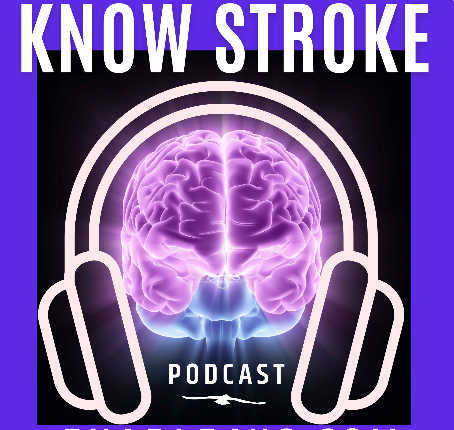In today’s world, where customers are bombarded with countless sales pitches and endless information, it can be difficult to stand out from the competition. Yet one factor consistently drives customer loyalty and long-term Relationships—trust. Trust is not just a soft, intangible element in business relationships; it has a measurable impact on customer retention, satisfaction, and overall success. Building and maintaining trust in customer relationships takes time and intentionality, and it’s a critical component of long-term business success.
But what exactly makes trust so important, and how can sales professionals cultivate it? The answers lie not only in behavioral psychology but also in neuroscience, which reveals that trust activates key regions of the brain responsible for bonding, decision-making, and loyalty. By understanding the role of trust on a neurological level, sales professionals can strategically build stronger, more lasting relationships with their customers.
At its core, trust is a biological process that occurs in the brain. When someone trusts another person or organization, their brain releases oxytocin, sometimes called the “bonding hormone” or the “trust hormone.” This neurochemical fosters feelings of safety, bonding, and connection. Oxytocin is essential for developing trust because it allows us to feel comfortable and confident in our relationships.
For sales professionals, building trust means more than delivering on promises or having an excellent product or service. It’s about fostering an environment where customers feel genuinely valued and understood. Research shows that when customers feel listened to, respected, and valued, their oxytocin levels increase, which enhances their willingness to engage with the sales professional and the company.
Coaching your sales team to engage authentically with customers, to actively listen, and to be responsive can help trigger this trust response. When salespeople approach interactions with empathy and understanding, they tap into the customer’s brain chemistry in a way that helps strengthen the long-term relationship.
Trust isn’t something that happens instantly; it’s built over time through repeated, consistent actions. Our brains are designed to recognize patterns, and consistency helps customers build a sense of predictability with your brand. When a sales team consistently meets or exceeds customer expectations, the customer’s brain forms a positive association with the company, leading to increased trust.
Neuroscience research reveals that the brain’s reward system is activated when an individual experiences consistent positive outcomes. For customers, this means that when your sales team consistently delivers on promises—whether through meeting deadlines, offering helpful follow-ups, or solving problems promptly—the customer begins to trust that future interactions will be similarly rewarding. Over time, this creates a foundation of reliability that can be difficult for competitors to disrupt.
Sales coaching programs that emphasize consistency can significantly impact a team’s ability to build long-term trust. Simple actions, such as maintaining regular communication and transparency, help reinforce the trust-building process in the brain. A well-coached sales team understands that even small, routine interactions contribute to the larger goal of developing a lasting, trust-based relationship.
While consistency is crucial, there is another, perhaps more surprising, element that plays a significant role in fostering trust: vulnerability. Neuroscience shows that being open and transparent, especially in moments of challenge, can actually increase trust and deepen relationships. Customers are more likely to trust individuals and companies that admit when they don’t have all the answers but show a commitment to finding a solution.
This concept of vulnerability is tied to the brain’s processing of authenticity. When sales professionals are authentic—whether by admitting a mistake, offering transparency about challenges, or showing genuine care for the customer’s well-being—it activates the brain’s trust circuits. Authenticity reduces the customer’s cognitive load, meaning they don’t have to work as hard to figure out if they can trust the sales professional, because the behavior appears genuine.
Sales coaching that integrates the neuroscience of vulnerability and authenticity helps sales teams understand that perfection isn’t necessary to build trust. In fact, showing a bit of humanity often strengthens the relationship because it makes salespeople more relatable and trustworthy. By teaching sales professionals to balance confidence with openness, coaching helps foster a culture of authenticity that customers will appreciate.
The emotional bond between a salesperson and a customer is a powerful driver of long-term relationships. Trust is built not just on the logical aspects of doing business, such as product quality and service reliability, but also on the emotional connection between individuals. Neuroscience reveals that trust engages both the cognitive and emotional centers of the brain, and emotions play a large role in decision-making processes.
When customers feel a genuine emotional connection with a salesperson or brand, they are more likely to remain loyal, even when competitors offer similar products or lower prices. This emotional connection is fostered through frequent positive interactions that engage the brain’s limbic system, which processes emotions and memories. The more emotionally positive experiences a customer has with a sales professional, the stronger the relationship becomes.
By focusing on emotional intelligence (EQ) during sales coaching, organizations can help their teams cultivate the skills necessary to build these emotional bonds. High EQ enables salespeople to better understand and manage both their own emotions and their customers’ emotions, leading to more meaningful, trust-based interactions.
In an era where customers are overwhelmed with options, trust becomes a key differentiator. Customers are more likely to choose—and stick with—brands they trust. Trust helps reduce the risk and uncertainty that often accompany purchasing decisions, especially in B2B environments where the stakes are high.
Sales teams that understand the neuroscience behind trust have a significant competitive advantage. They know that trust is built over time through consistent, authentic interactions and that this trust triggers positive neurological responses in the customer’s brain. By Investing in coaching that emphasizes emotional intelligence, authenticity, and consistency, sales teams can build relationships that withstand competition and market fluctuations.
The post The Role of Trust in Long-Term Customer Relationships appeared first on Braintrust Growth.
I come from a large Italian family. I’m number seven in the line of ten kids!
When my dad passed away some years ago, I was fortunate enough to be there as the end was coming. I was standing just to the right of his hospital bed; he was lying there with his eyes closed. All of a sudden, Dad opens his eyes. He looks up at the ceiling with a look of peace – and maybe accomplishment – on his face. Then he closes his eyes for the last time. I guess out of instinct, I reached down and kissed him on that prickly cheek one last time. My dad left a legacy in that life well lived! A legacy based on three main principles: Family, Service, and Dedication. I do what I do to carry on that legacy to the best of my ability.












































BabyBoomer.org is an online membership community created by and for the Baby Boomer Generation. Boomers, and those who service and support them, are welcome to join our community accessing all general topics.
Notifications
